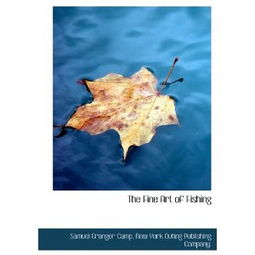Content:
Fishing is an ancient and beloved pastime that requires patience, skill, and a keen understanding of the environment. Among the many factors that can affect your fishing success is the weather, particularly when it comes to early mornings and rainy afternoons. These times can be challenging, but with the right techniques, you can still enjoy a productive day on the water. Here are some expert fishing tips to help you catch more fish during early mornings and rainy afternoons.
Understanding the Early Morning Catch
Early mornings are often considered prime fishing times because fish are more active and feed more frequently during the early hours of the day. However, the early morning fishing experience can be quite different from that of the afternoon. Here are some tips to help you fish effectively during the early morning:
Start Early: Fish are most active before the sun rises, so it's crucial to get on the water as early as possible. Aim to be there at least 30 minutes before dawn.
Quietness is Key: Early morning fish are often skittish. Make sure your movements are deliberate and quiet to avoid startling them.
Use Soft Baits: Early in the morning, fish tend to be more conservative in their feeding habits. Soft baits like worms, lures, or artificial flies can be more effective than hard baits.
Find Cover: Fish often seek shelter in areas with cover, such as rocks, logs, or vegetation. Cast into these areas to increase your chances of a bite.
Adjust Your Tackle: Early morning fish may be smaller, so using lighter tackle can help you feel the subtle bites and set the hook more effectively.
Be Patient: Early morning fishing can be slow, so patience is a virtue. Wait for the right moment to cast or adjust your lure to mimic natural prey movements.

Catching Fish During Rainy Afternoons
Rainy afternoons can be less productive for fishing, but they also present unique opportunities. Here are some strategies to help you fish successfully during these times:
Stay Dry: Rain can make fishing uncomfortable, so dress appropriately in waterproof gear. A good rain jacket and pants can keep you dry and comfortable.
Find Fish in Shelters: Just like in the morning, fish seek shelter during rainstorms. Look for areas like under docks, bridges, or in deeper water where fish can stay out of the worst of the weather.
Adjust Your Lure: In the rain, fish may be less likely to chase after fast-moving lures. Slow down your retrieve and use more subtle presentations.
Use Live Bait: Live bait can be more effective during rainy conditions as it can mimic the movement of natural prey that fish are more likely to pursue.
Be Mindful of Currents: Rain can increase water flow, so be aware of currents and how they might affect your fishing spot. Fish often move to areas with less current during storms.
Stay Alert: Even when the weather is bad, fish can still be active. Keep your eyes and ears open for signs of feeding behavior, such as surface activity or changes in water color.
Postpone if Necessary: If the rain is too heavy or the wind is too strong, it might be best to postpone your fishing trip. Safety should always come first.
Final Thoughts
Fishing during early mornings and rainy afternoons can be rewarding if you know how to adapt your techniques to the changing conditions. By understanding the behavior of fish during these times and adjusting your approach accordingly, you can increase your chances of a successful catch. Remember, the key is patience, observation, and a willingness to change your tactics as needed. With these tips in mind, you'll be well on your way to mastering the art of fishing during the most unpredictable weather conditions. Happy fishing!












